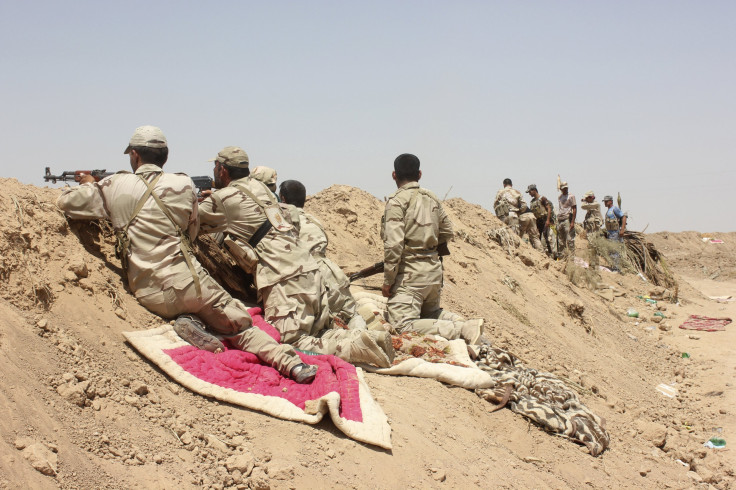How To Beat ISIS: Pentagon Strategy To Defeat 'Imminent Threat' From Militants

The Islamic State militants who beheaded James Foley are “an imminent threat to every interest we have,” said Secretary of Defense Chuck Hagel. “[ISIS] is as sophisticated and well-funded as any group that we have seen. They're beyond just a terrorist group.”
Hagel, along with Martin Dempsey, chairman of the Joint Chiefs of Staff, addressed the ongoing threat that ISIS poses to America, and discussed the administration's efforts to vanguish the militants. The group calls itself the Islamic State; it is also referred to as the Islamic State in Iraq and Syria (ISIS) and the Islamic State in Syria and the Levant (ISIL). "If [ISIS] were to achieve their vision, it would fundamentally alter the shape of the Middle East," Dempsey said at the press briefing on Thursday.
Earlier this month, ISIS used its social media accounts to call for sleeper-cell attacks on U.S. interests worldwide, following President Barack Obama's authorization of targeted airstrikes in Iraq. The threat comes after an unnamed Reuters reporter engaged in several phone conversations with Islamic State fighters who indicated that their leader, Iraqi Abu Bakr al-Baghdadi, has plans to attack the West. The voice on the video that showed Foley's beheading indicated to investigators that the executioner is probably from Britain -- a fact that Prime Minister David Cameron called "deeply shocking." It also strengthened the view that ISIS has recruited citizens of Western nations.
President Obama okayed a special operation to try to rescue Foley and other U.S. hostages in early July; it failed because the hostages were not at the expected location. U.S. military operations have continued since Foley’s death. On Thursday, American warplanes conducted airstrikes on Iraq, hitting targets near Mosul dam -- an area that had been under ISIS control but was recently reclaimed by Kurdish forces. The U.S. has launched six more airstrikes near the dam in support of Iraqi Security Force operations.
"It is possible to contain [ISIS],” Dempsey said, adding that the group’s momentum has been stopped. But military action may not be enough to regain control of the region. Political reform -- and the battle for hearts and minds -- are critical.
“ISIS will truly only be defeated when it is rejected by the 20 million Sunni [Muslims] in the region,” Dempsey said.
Hagel seconded that view. “The defeat of [ISIS] is not only going to come at the hands of airstrikes. ... Inclusive government in Iraq is essential,” he said.
To date, seven humanitarian airdrop missions, more than 60 daily intelligence, surveillance and reconnaissance missions and 89 targeted airstrikes on Islamic State positions in northern Iraq have been undertaken to stop ISIS, Dempsey said.
Other countries including Great Britain, France and other allies will join in the effort to stop ISIS, Hagel said.
The description of ISIS as an "imminent threat" to American security raised the question of mission creep, and whether U.S. military involvement would inevitably expand. Hagel said President Obama’s position has remained firm since he authorized the use of force on Aug. 7.
“The president has been very clear on mission creep. He's made it very clear that he will not allow that,” Hagel said.
© Copyright IBTimes 2024. All rights reserved.












